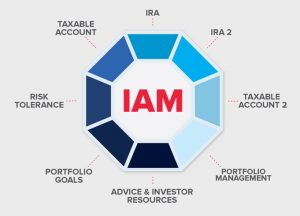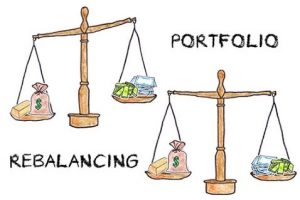
Unified investment account management is extraordinarily important in order to achieve investment success.

The onset of a new year represents an ideal occasion for investors to take the important time to review the objectives of their investment portfolio(s). Investment objectives focus on the accepted risk-return tradeoff between the expected return investors want (return requirements), and how much risk they are willing to assume (risk tolerance). Moreover, this then determines the asset allocation (cash, fixed income, stocks, other), portfolio diversification, income generation, risk and tax positioning.
Two of the most important decisions an investor must make when constructing portfolios are 1) allocation of the portfolio assets between stocks, bonds, cash and other investments and 2) diversification of securities within those asset classes.

For many investors, an investment record keeping system consists of shoe boxes in a closet, unopened envelopes in a kitchen drawer, or other similar disorganized collection of investment statements. For such investors, these investment record keeping systems provide little, if any, educational benefit for managing your portfolio.

If you want to take advantage of the compounding effect of income producing investments, then a solid dividend reinvestment plan (DRIP) may be suitable for your needs.

As 2021 is nearing year end, now may be an ideal time for investors to review their portfolio investments, making necessary rebalancing changes.


With the run-up of stock market prices over the past several years, investors might find one or more of their investment holdings have appreciated considerably in value, now representing a disproportionate percentage by market value. With this in mind, it is important for investors to pay attention to these concentrated investment position(s), an important investment concept that often is over-looked for proper portfolio management.

As the close of 2020 quickly approaches, investor’s should start thinking ahead, reviewing and taking advantage of tax saving strategies. Here are three important tips that will help investor’s manage tax consequences, while helping to better manage their investment portfolio(s).

As we’re nearing the end of 2020, we pass along this reminder that now might be an ideal time to review your portfolio and identify if any rebalancing changes may be necessary to reach long-term goals. Here’s a multi-step guideline that you will find helpful to accomplish this important portfolio management task.
“Nothing lasts forever but the certainty of change.” — Bruce Dickinson

The passage of the SECURE Act has resulted in major changes to the tax rules governing contributions to, and required withdrawals from, qualified retirement plans and IRA accounts.
In many cases, the Act makes existing estate planning for retirement benefits obsolete.
While most of the changes will accelerate taxes on retirement assets, there are also some taxpayer-friendly changes as well.